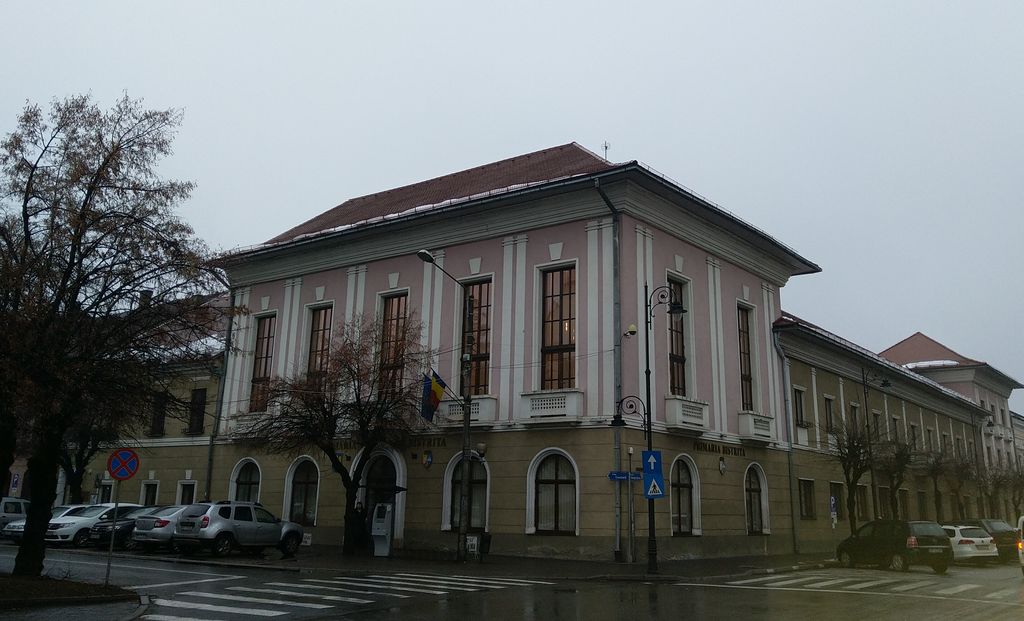Participatory budgeting, which allows citizens to get involved in making decisions about the development of their locality, is currently in Bistrita, in the theory stage that does not have logistical support to put into practice.
The reality came to light in the last meeting of the Bistrita City Council in which the councilor of USR PLUS Nicolae Pavelean inquired about his status, who warned that the participatory budget section was recently launched in the City Health Bistrita application.
“We saw that the application offers the possibility to select the problems by categories, such as street lighting, roads or green spaces. This is welcome in the sense that an analysis could be made on the types of problems that will show us which are the problems that most affect the quality of life of the inhabitants of Bistrita. I would like to know if the Executive uses this data extracted from the City Health Bistrita application and I would also like to know if this data can be made available to us, so that the projects initiated by us and the Executive are as focused as possible on the issues that more affect the quality of life of the inhabitants of Bistrita. We saw that the other day the participatory budgeting section was launched, something that only makes us happy. I would like to know if there is a clear regulation on how to carry out this process, establishing all the steps to be followed in it, as well as the budget of the projects to choose. I believe that such a regulation should be adopted by a decision of the local council and I would like to know if there is such a draft decision. USR PLUS representatives are open to participate in their development. Since 2019, we have asked for it to be implemented, ”said Nicolae Pavelean.
Mayor Ioan Turc responded that the City Health app is “one with default settings, with notifications, participatory budgeting and survey mode.”
“We rented this application and it will work until we have an application dedicated to the city of Bistrita made by Indeco and the new site and equipment etc. will be provided to you. We need a regulation for the participatory budget and we will enter a CL meeting with a regulation proposal until the CL meeting in which we will approve the budget or at the latest in that meeting, ”said Turc.
Participatory budget It is not a novelty in the world, it was adopted in 1989 in Brazil, in the last fifteen years spreading to Europe. It operates in more than 1,500 cities around the world, of which around 100 cities where participatory budgeting is implemented are located in Romanian neighbors (eg Cluj, Sibiu).
The purpose of participatory budgeting is not just to allocate a certain amount of money, so it is not a grant program under a new name. The purpose of the participatory budget is to involve the inhabitants in the dialogue about the formation of the place where they live, to show people the possibilities of the locality and how they can contribute to their formation, as well as to teach the City Council how to listen to the citizens and communicate efficiently and constructively with them. An important part of the participatory budget are public meetings and debates on proposals in which new relationships between neighbors and a constructive and pleasant atmosphere can be born in the town.
The form of the process and the amount distributed in the participatory budget differ from one location to another. However, it is not true that the participatory budget generates unnecessary expenses to the local budget, on the contrary. In today’s legendary Brazilian city of Porto Alegre, participatory budgeting was implemented just when the city was on the verge of bankruptcy, and the City Council called on the public to decide on the expenses they consider essential. Today, cities in South America decide in this way, even on basic urban services, and that is why it is often even tens of percent of the total budget. This is also reflected in the decision-making structure: discussions about the proposed projects take place in a series of thematic or regional working groups, in which a large number of inhabitants participate.
In Europe the situation is different. Decision-making on strategic investments in infrastructure remains the responsibility of local authorities and participatory budgeting leaves room for creativity and ideas from the inhabitants. These are usually civic projects for landscaping and green spaces, but also “soft” projects like education, festivities or neighborhood gatherings.
The mayor’s office allocates part of the annual budget, after which the inhabitants will present proposals on what should be improved next year in the town. In formulating these proposals, citizens, assisted by the city administration, meet in local or thematic public debates with neighbors, where they discuss what they want to change in their locality and how. They then send joint proposals to the City Council to verify their viability. The culmination is the popular vote for the selection of citizen proposals to be carried out by local authorities. read more HERE.





